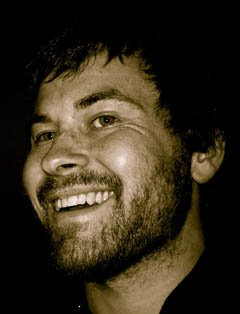With little else to do than sit in my hotel and wait for a call from the embassy, I thought I’d organise my thoughts on all of this. It beats zoning out to MTV and CNN. Apologies in advance if my writing is a bit slack at times – I’m typing this quickly!
There is real trepidation here, no doubt. Every so often, I step onto my balcony and look down on Rue Hamra. This area, as I’ve said before, is a tourist haven. It’s lined with shops and fast food outlets, and is not far from the picture-postcard scenery of the Corniche.
That's changed. The streets are virtually empty. People in Hamra are taking no chances. They are wisely staying indoors, with only the TV news channels for company. Hamra was no stranger to the bullet during the civil war, and with Israel indulging in punitive strikes against civilian infrastructure, residents are erring very much on the side of caution. They know the drill.
Around two hours ago, four loud explosions thundered up from south Beirut. That was followed by the shelling of a lighthouse not far from here. Despite the Lebanese familiarity with airstrikes, everyone looks worried. Hizbullah’s vow to engage in open warfare is, however, galvanising some civilians here.
Israeli shells hit a minibus in the very south of Lebanon today, close to the UN base in Naqoura. At least 15 civilians have been killed. It will be interesting to see Israel says when confronted with the facts of the massacre they have perpetrated there.
Such operations are not without precedent. In 1996, Israel’s ‘Grapes of Wrath’ operation targeted a UN base in the town of Qana, which was sheltering Lebanese refugees. Proximity shells – which explode above the ground in order to rip people to shreds through shrapnel – were used. Over a hundred innocent civilians were killed.
Israel argued that Hizbullah had stationed missiles close to the UN centre. The UN charged that the Israelis deliberately targeted the base, which drew the Israeli response that they had simply made an unfotunate error in their targeting. Only later did an amateur video recording show that an unmanned Israeli drone flew over the area shortly before the strike – suggesting that the Israelis knew for certain that civilians were there.
I use this example to illustrate that, when Israel talks of ‘unfortunate’ civilian casualties, the real fact is that innocents in Lebanon are a price worth paying to them. Look at the infrastructure they are destroying. Look at the power terminals they have targeted. Look at the air and sea ports, reduced to rubble.
And look at the roads. The airstrikes have succeeded in making escape from Lebanese hotspots impossible. When I went to Haret Hreik on Tuesday, the first thing that struck me was how densely populated it was. An area that is being targeted by Israeli warplanes has had its evacuation routes destroyed. Civilians cannot leave easily. It’s a turkey shoot. If the rate of hits on essential infrastructure continues, a humanitarian crisis is certain.
Let it be said - Hizbullah was reckless and inflammatory in its capture of Israeli soldiers. Many Lebanese feel this. With Hamas already holding an Israeli soldier, surely Hizbullah knew what to expect. Yet even by Israel’s standards in Gaza, their current strikes on the Cedar state are unprecendented. It is a blitzkrieg operation against the Lebanese people.
Such strikes surely aim to undermine Lebanon’s shaky government as well as target Hizbullah. Arguments, recriminations and backbiting have been a sad feature on the Lebanese political scene since Syria left Lebanon in April 2005. The March 14 parliamentary bloc – of which Prime Minister Fouad Siniora, Hariri’s son Saad and Druze leader Walid Jumblatt are committed members – are just some of the political actors ranged against the pro-Syrian President of Lebanon, Emile Lahoud.
In an attempt to hammer out a stable future beneficial to all Lebanese, a national dialogue has been rumbling on for the last few months now. It aimed to take Lebanon forward after the death of Hariri. Sadly, it has achieved little. Each dialogue meeting ends only in a promise to respect mutual concerns. Nothing else happens. Politicians in Lebanon have appealed to Hizbullah to disarm, or dissolve its armed wing into the Lebanese army, but the impotence of politicians in Lebanon means such bids are proving futile.
It must be remembered that Hizbullah is a legitimate party in Lebanon, democratically elected, with seats in the parliament. Other politicians cannot merely demand that Hizbullah disarm. The accommodation of all elected parties wishes in Lebanon is part of the landscape here. Therein lies the challenge in taking Lebanon forward as a unified state.
So what are Hizbullah’s true demands? The release of Lebanese prisoners in Israeli jails for one. Another is the exit of Israeli troops from the Shebaa Farms region – a little area of land on the north Israel border. Shebaa has not been covered by CNN, the only English language broadcaster I currently have access to here, yet it is of crucial importance in understanding why Hizbullah still holds arms.
The Shebaa is seen by Lebanon and Syria as Lebanese land, while the UN and Israel view it as Syrian. For Israel, it sees Shebaa’s occupation as necessary security against Syria. Yet those living on the land – predominantly farmers – agree the land is Lebanese.
With Hizbullah viewing the land as Lebanese, it gives them a political mandate for keeping its arms. Such analysis is absent on news networks – instead the popular networks' presentation becomes one of who ‘started’ it, like a scrap in the playground.
Meanwhile, the ones who did not start anything over the last week – the Lebanese public and Israeli public – cower. Caught between an inflammatory action by Hizbullah and the state terrorism of Israel, they will continue to lock their doors.
Subscribe to:
Post Comments (Atom)

No comments:
Post a Comment